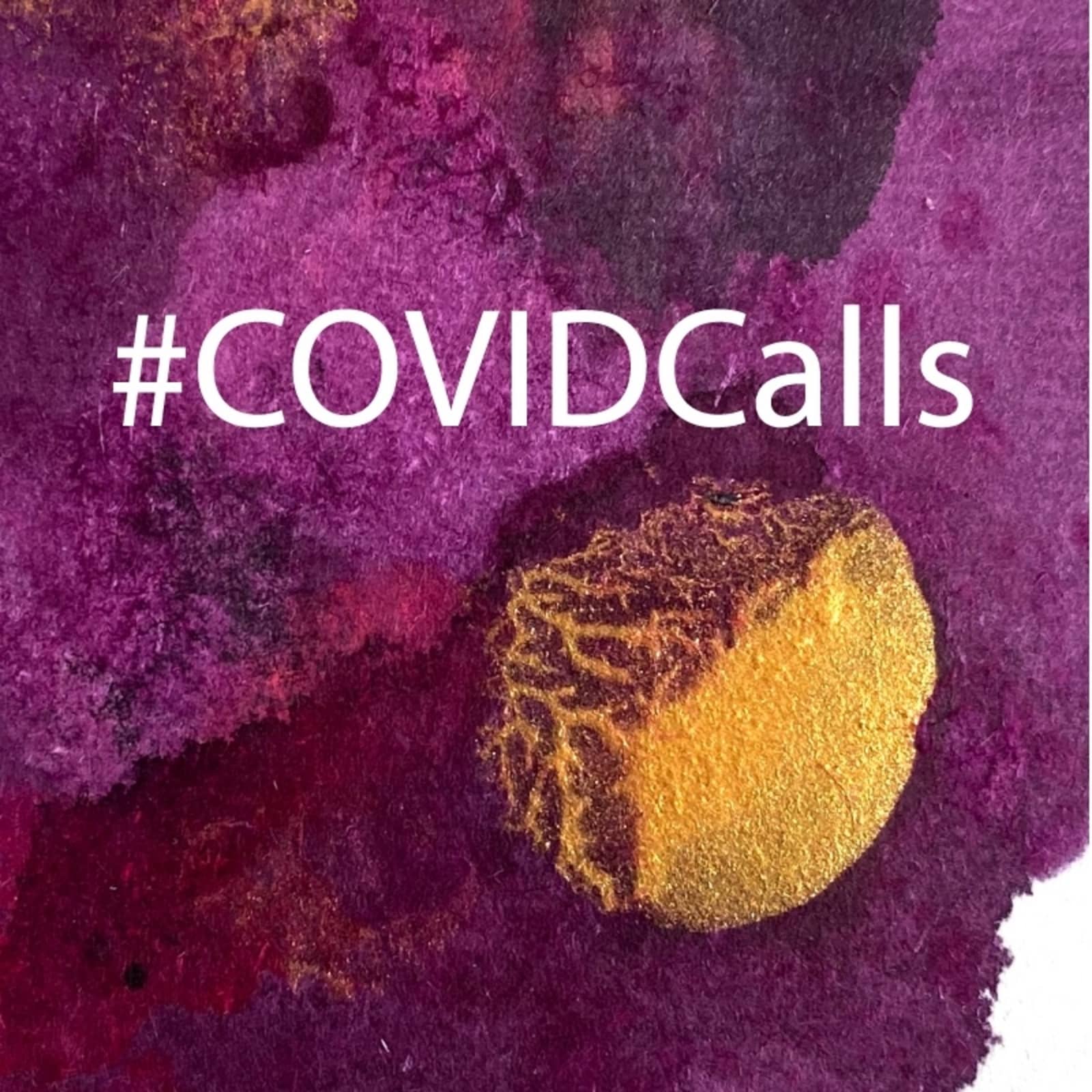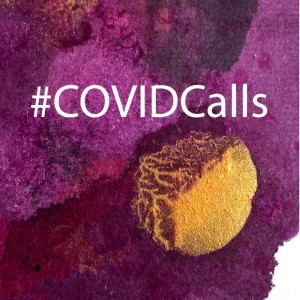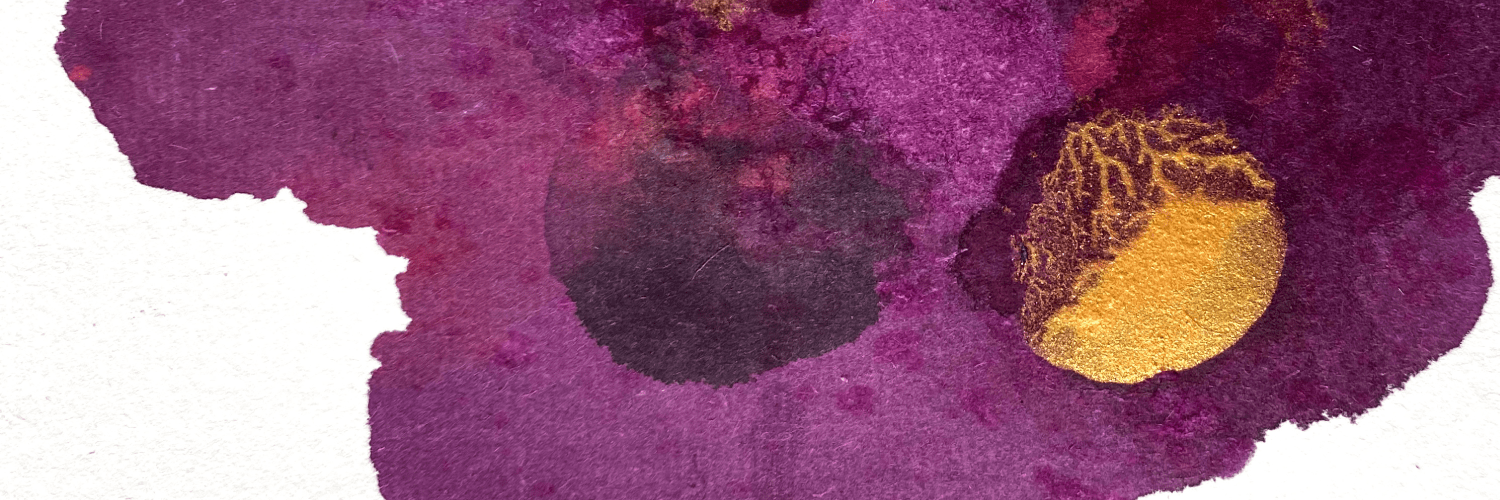
56K
Downloads
504
Episodes
A daily discussion of the COVID-19 pandemic with a diverse collection of disaster experts - hosted by Dr. Scott Gabriel Knowles, a historian of disasters at KAIST in Daejeon, South Korea.
A daily discussion of the COVID-19 pandemic with a diverse collection of disaster experts - hosted by Dr. Scott Gabriel Knowles, a historian of disasters at KAIST in Daejeon, South Korea.
Episodes

Saturday Feb 20, 2021
EP #224 - 02.20.2021 - Libraries and Librarians in the Pandemic
Saturday Feb 20, 2021
Saturday Feb 20, 2021
Libraries and Librarians in the Pandemic with Melanie Meyers, Jaime Taylor, Emily Drabinsky and John Pollack.
Emily Drabinski is interim chief librarian at the Graduate Center, City University of New York. She took on this role effective March 15th. The library building closed on March 13th. Prior to joining the Graduate Center, Drabinski spent ten years at Long Island University, Brooklyn as a teaching librarian and union activist. She edits Gender & Sexuality in Information Studies, a book series from Library Juice Press/Litwin Books.
Melanie Meyers is the Director of Collections and Engagement at The American Jewish Historical Society. Prior to joining AJHS in 2018, she was the Senior Manager for Reference and Outreach at The Center for Jewish History, New York City. She is an instructor at The Palmer School of Library and Information Science, Long Island University, where she teaches a variety of classes for the special collections/rare books specialization, including “Special Collections Librarianship” and “History of the Book”.
John H. Pollack is Curator, Research Services, in the Kislak Center for Special Collections, Rare Books and Manuscripts at the University of Pennsylvania Libraries. He has worked in this department since 1995. His responsibilities include providing assistance to students and scholars, and teaching and organizing class sessions centered on the collections. John holds a PhD in English from Penn. He specializes in Early American literature and history, and early modern book history. His research has focused on topics including Native American languages and Benjamin Franklin and colonial education.
Jaime Taylor is the Discovery and Resource Management Systems Coordinator at UMass Amherst. During the pandemic she has been both keeping library catalog and search systems live for remote teaching, learning, and research; and working on the Five College Consortium’s implementation of FOLIO, an open source library services platform. She is currently working on a book chapter about project management in consortia; her professional interests include organized labor, anti-racism work, library instruction from a systems and technical services perspective, and flattening managerial hierarchies more than is currently fashionable.

Friday Feb 19, 2021
EP #223 - 02.18.2021 - Mutual Aid & the Auntie Sewing Squad
Friday Feb 19, 2021
Friday Feb 19, 2021
Today is a discussion of partnership w/the Lepage Center for History in the Public Interest of Villanova University, featuring Chrissy Lau and Preeti Sharma in a discussion of the Auntie Sewing Squad.
Chrissy Yee Lau is an Assistant Professor of History at California State University Monterey Bay. She writes histories on race, gender, religion, and empire. She has published her research in the anthology Gendering the Trans-Pacific World and a special issue on Asian American Public History in the journal Southern California Quarterly. She has also researched and developed museum exhibitions for the public and digital exhibitions in the classroom.
Preeti Sharma is an Assistant Professor of American Studies at California State University, Long Beach. Her writing on race, gender, and labor have appeared in The Journal of Asian American Studies. She has supported numerous research justice and storytelling efforts, including with the UCLA Labor Center. She is also co-lead author of the first national study on labor issues in the nail salon sector.

Wednesday Feb 17, 2021
EP #222 - 02.17.2021 - The Opioid Addiction Disaster & the Pandemic
Wednesday Feb 17, 2021
Wednesday Feb 17, 2021
Today is a discussion of the opioid crisis and the pandemic with bioethicist Travis Rieder.
Travis N. Rieder, PhD, is a bioethicist, philosopher and author, currently serving as Director of the Master of Bioethics degree program and a Research Scholar at the Johns Hopkins Berman Institute of Bioethics. He also has secondary appointments in the Departments of Philosophy and Health Policy & Management, as well as in the Center for Public Health Advocacy.
In recent years virtually all of his attention has turned to the ethical and policy issues raised by pain, opioids, and America’s problem with the two. In 2019, Travis published In Pain: A Bioethicist’s Personal Struggle with Opioids, in which he combines narrative from his own experience as a pain and opioid therapy patient with his expertise in philosophy and bioethics to identify, explain, and attempt to solve some of the most profound questions raised by pain and addiction medicine.

Tuesday Feb 16, 2021
EP #221 - 02.16.2021 - The Lockdown Diaries
Tuesday Feb 16, 2021
Tuesday Feb 16, 2021
Today is a discussion of COVID-19 in South Africa and the Lockdown Diaries Project with Fiona Anciano.
Fiona Anciano is an Associate Professor in the Department of Political Studies at the University of the Western Cape, South Africa. She is a qualitative researcher with an interest in urban governance, democratisation and civil society. She conducts research in informal settlements on urban democracy and informality. In 2020 she ran the lockdowndiaries project (www.lockdowndiaries.org) reflecting on the impact of Covid-19 regulations on residents in Cape Town. She has produced numerous publications including book chapters and journal articles, most recently a co-authored book Democracy Disconnected: Participation and Governance in a City of the South, published by Routledge, UK in 2019. She is also co-editor of a forthcoming collection, published by Routledge titled Political Values and Narratives of Resistance: Social Justice and the Fractured Promises of Post-colonial States.

Tuesday Feb 16, 2021
EP#220 - 02.15.2021 - Inside the Virus Research Lab with Justin Meyer
Tuesday Feb 16, 2021
Tuesday Feb 16, 2021
Today is a discussion of virus evolution with biologist Justin Meyer.
Justin Meyer is associate professor of biology at UC San Diuego. He received his Ph.D. from Michigan State University and was a Systems Biology Departmental Fellow at Harvard Medical School, where he was awarded the James S. McDonnell Foundation Fellowship for Studying Complex Systems. He joined the faculty of Ecology Behavior and Evolution and the Quantitative Biology Initiative in 2014. His lab studies changes to viral genomes which allow them to infect new species--And, the natural processes – mutation, recombination, and natural selection – that permit their evolution.

Friday Feb 12, 2021
EP #219 - 02.12.2021 - Disinformation, Conspiracy, Pandemic
Friday Feb 12, 2021
Friday Feb 12, 2021
Today is a discussion of Disinformation in the Pandemicwith returning COVIDCalls guest Kate Starbird.
Kate Starbird is an Associate Professor at the Department of Human Centered Design & Engineering (HCDE) at the University of Washington (UW). Kate’s research is situated within human-computer interaction and the emerging field of crisis informatics—the study of the how social media and other information-communication technologies are used during crisis events. Currently, her work focuses on the production and spread of online rumors, misinformation, and disinformation in the context of crisis events. Starbird is a co-founder of the UW Center for an Informed Public.

Thursday Feb 11, 2021
EP #218 - 02.11.2021 - Behavioral, Addiction and the Pandemic
Thursday Feb 11, 2021
Thursday Feb 11, 2021
Today is a discussion of Behavioral, Addiction and the Pandemic with Amanda Latimore.
Amanda Latimore is a social epidemiologist that focuses on overdose and addiction policies, practices, and programs. Dr. Latimore is the Director of the Center for Addiction Research and Effective Solutions (CARES) at American Institutes for Research and adjunct faculty at the Johns Hopkins Bloomberg School of Public Health.

Wednesday Feb 10, 2021
EP #217 - 02-10-2021 - Maternity Care in the Pandemic
Wednesday Feb 10, 2021
Wednesday Feb 10, 2021
Today is a discussion of maternity care in the pandemic with Zaneta Marie Thayer.
Dr. Zaneta Marie Thayer is an Assistant Professor of Anthropology at Dartmouth College. She earned her PhD at Northwestern University and is the 2020 recipient of the Michael A. Little Early Career Award from the Human Biology Association. Her research addresses how early life environments, including those experienced during pregnancy, affect health. In April 2020, she launched the COVID-19 and Reproductive Effects (CARE) study to understand the impacts of the COVID-19 pandemic on stress and maternity care experiences among pregnant persons living in the US.

Friday Feb 05, 2021
Friday Feb 05, 2021
Today is the third of three COVIDCalls special episodes in partnership with two great research libraries: the American Philosophical Society and the Linda Hall Library. These episodes will explore challenges and new approaches for research libraries and the patrons that use them in the time of COVID. Today I welcome Nicole Schroeder and Andrew Seaton.
Nicole Schroeder is a Ph.D. candidate at the University of Virginia and a current Dolores Liebmann Fund Fellow. In 2018-19 she held the Friends of the APS Predoctoral Fellowship in Early American History (to 1840) at the American Philosophical Society and from 2019-2020 she held the Program in Early American Economy and Society Predoctoral Fellowship at the Library Company of Philadelphia. Nicole studies the history of disability, welfare, and medicine in early America.
Andrew Seaton is a Ph.D. candidate in history at New York University. His dissertation explores the relationship between politics, society, and universal health care through a transnational history of the British National Health Service (NHS). Andrew argues that this pivotal postwar institution demonstrates overlooked endurances to social democratic structures and political cultures. This interpretation challenges historical narratives that map the rising hegemony of late twentieth-century neoliberalism. His research scales from the everyday work that embedded communitarian ideals in hospital wards and health centers across Britain, to the NHS's wider significance in trans-Atlantic discussions about health reform, processes of decolonization, and the movement of medical professionals across borders. Andrew has published articles in Twentieth Century British History and the Bulletin of the History of Medicine.

Thursday Feb 04, 2021
Thursday Feb 04, 2021
Today is the second of three COVIDCalls special episodes in partnership with two great research libraries: the American Philosophical Society and the Linda Hall Library. These episodes will explore challenges and new approaches for research libraries and the patrons that use them in the time of COVID. Today I welcome Joanna Radin and Robin Wolfe Scheffler to the discussion.
Joanna Radin is a historian of life and human sciences at Yale University, where she is Associate Professor of History of Medicine and a core member of the Program in History of Science & Medicine. There, she is also affiliated with the Departments of History, Anthropology, and American Studies as well as the Programs in Ethnicity, Race & Migration and Religion & Modernity. She is the author of the book Life on Ice: A History of New Uses for Cold Blood (Chicago 2017) and co-editor (with Emma Kowal) of Cryopolitics: Freezing Life in a Melting World (MIT 2017). In addition to numerous academic journals, her writing has also appeared in the Washington Post, Los Angeles Review of Books and The New Inquiry. She is currently at work on a book, tentatively titled, Surreal Science: Michael Crichton, Mass Media and the Manipulation of Modern Life. Radin is co-editor (with Adrian Johns) of the Science as Culture series at University of Chicago Press.
Robin Wolfe Scheffler is an Associate Professor in the Program in Science, Technology, and Society at MIT. His first book, A Contagious Cause:The American Hunt for Cancer Viruses and the Rise of Molecular Medicine (University of Chicago Press, 2019) examined the century-long effort to identify a human cancer virus and develop a vaccine. His current research, supported by the National Science Foundation focuses on the history of the biotechnology industry in the Greater Boston Area.
